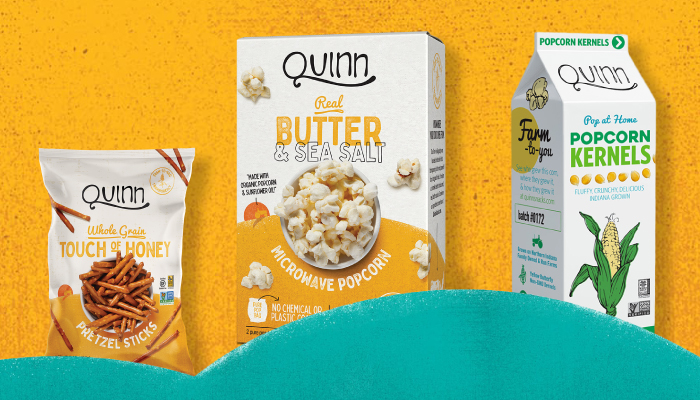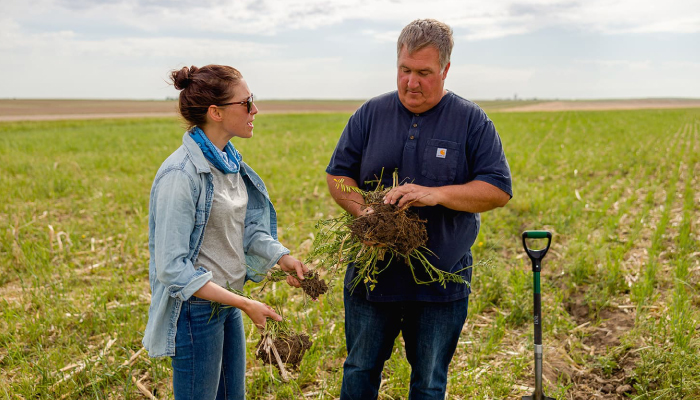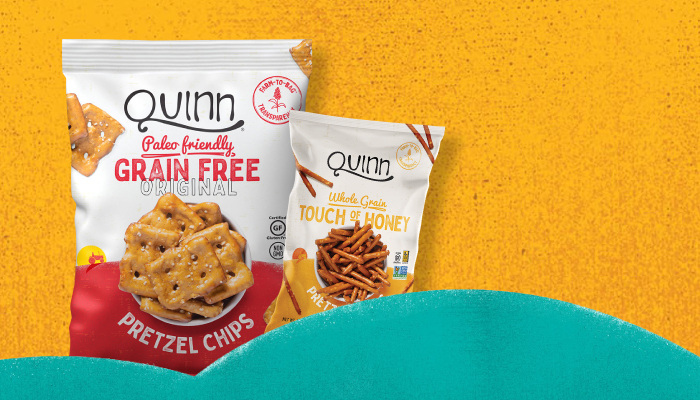Quinn Closes Funding, Celebrates a Decade in Business

The round included current investors Boulder Food Group, Echo Capital, John Foraker, Gil Fronzaglia, Sunil Thakor, and the investment arm of the Lissette family (the owners of Utz Quality Foods). Lewis declined to share how much capital the company has raised in total, but SEC filings indicate the brand has raised $4.3 million to-date. The newest round will help the brand further expand its team and support retail growth, she added. Although it’s been a long road for the brand, with Quinn calling the round its Series D funding, Lewis said she appreciates how the company has had a longer runway to find its path, with the opportunity to make mistakes along the way.
“A lot of people might think that Quinn should have taken in more money all at once in the beginning,” Lewis said. “[But] if we had taken in a mass amount of capital when we first started, we wouldn’t have had the right idea of what to do with it at that point. We were still learning.”
The brand first launched with uniquely flavored, sustainably packaged microwave popcorn, aiming to educate consumers about the hidden chemicals in the packaging of the classic snack and the farmers behind the product. Whole Foods, and the natural channel, served as fertile testing grounds for the emerging brand, (somewhat ironically, Whole Foods no longer sells Quinn’s flagship product despite having initially helped fund the company with a local producer loan.) Quinn’s popcorn line is now largely aimed at conventional retailers, sold in in 4,300 locations including Target, Kroger, Safeway and Wegmans, where Quinn can offer a better-for-you option to brands such as Pop Secret. 
But in 2018, Lewis said, the company launched its greatest innovation to-date, gluten-free pretzels, which helped position Quinn as a larger snacking platform. Nut butter filled pretzels soon followed, with the brand launching grain-free pretzels this year. Seeing the consumer response to simple, better-for-you takes on favorites snacks, the company had a new path forward, Lewis said.
“We always go into categories that are kind of dying or slow… With [microwave popcorn] and then pretzels, there was no innovation,” she added. “We see opportunities in categories where others might not or they might give up hope… we know the nostalgic, classic snack is not going away. We just need to lean into what consumers want.”
The pretzels are now sold in 4,400 retailers including Whole Foods Market, Kroger, Walmart, and Wegmans, and perform well in both natural and conventional retailers, Lewis said.
Lewis said she hopes to eventually explore more sustainable packaging options and teach consumers more about where their food comes from. While there’s still more to accomplish, Lewis said she’s excited for the future.
“I tell my team, we haven’t made it and we have a long way to go, but I feel like the journey has been real,” she said. “There’s been a lot of lessons along the way that have helped us not only from a business perspective but also from a personal level.”

















